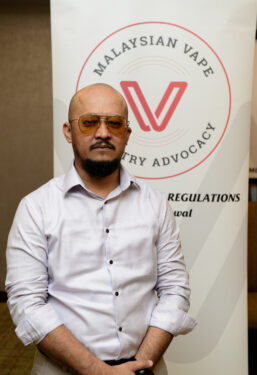LOCAL vape industry players are urging the Government to review the new tax rate for vape e-liquids, which will take effect starting January next year.
They have also suggested that the Government introduce a differentiated regulatory framework from tobacco for the vape industry.
In fact, the vape industry, which is made up of local manufacturers, strongly support the Government’s move to introduce a regulatory and taxation framework (for nicotine e-liquids) for the industry, according to the Malaysian Vape Industry Advocacy (MVIA) president Rizani Zakaria.
“However, the RM1.20 excise rate set for every millimetre (ml) of nicotine e-liquid is too high. This excise rate will burden manufacturers and have a negative impact on the industry,” he pointed out. “In most countries, tax rates on vape e-liquids are low.”

In European countries, for example, the tax rate imposed is only between 0.10-0.20 euros per ml. Countries like the UK and New Zealand do not even tax vape products as they are recognised as a tool that can help smokers quit their habit.
“Therefore, we urge the Government to review the excise rate so local players are not negatively impacted,” asserted Rizani.
Under the new tax rate, every 30ml bottle of vape e-liquid will be taxed at RM36. This rate is equivalent to the current retail price per 30ml bottle of vape e-liquid.
“Of course, consumers will be burdened with the new price and will look for cheaper alternatives. This may open up a black market,” he added.
In addition to vape taxes, Rizani said a regulatory framework is also a key component to ensure the industry remains competitive.
“The regulatory framework cannot be the same as tobacco and must take into account the impact on the local industry which consists of 3,300 small and medium enterprises (SMEs) and 15,000 employees,” he opined.
“Vape is not a cigarette or a tobacco product and it has been proven to help smokers quit as it is a less harmful alternative. If regulations are not differentiated between vape products and tobacco, it will hamper smoking cessation efforts and will only benefit tobacco companies.”
Rizani also shared examples from countries such as the UK and New Zealand where regulations are differentiated for tobacco and vape products.
Regulations are stricter for tobacco while vape products are allowed a leeway so it can be promoted as a less harmful alternative that can aid smokers in their quit journey.
“In this regard, an online petition has been launched on our website (www.mvia.com.my) to collect as many signatures as possible to support our efforts,” he added. – Dec 9, 2021









